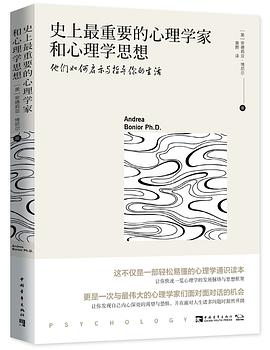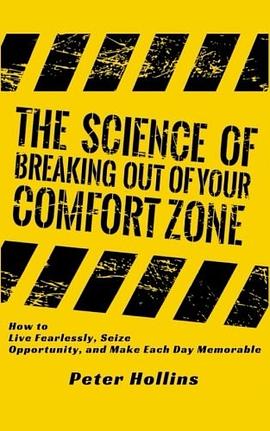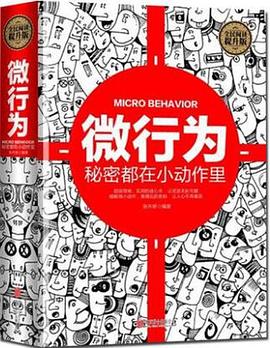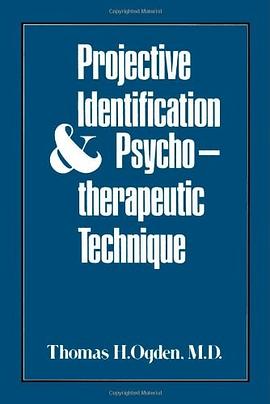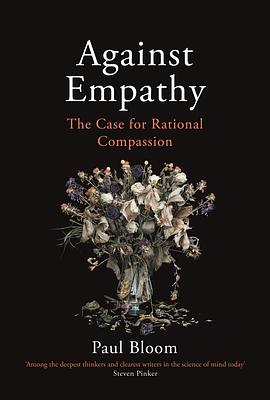

具體描述
In a divided world, empathy is not the solution, it is the problem; a source of prejudice, not kindness.
We think of empathy – the ability to feel the suffering of others for ourselves – as the ultimate source of all good behaviour. But while it inspires care and protection in personal relationships, it has the opposite effect in the wider world. As the latest research in psychology and neuroscience shows, we feel empathy most for those we find attractive and who seem similar to us and not at all for those who are different, distant or anonymous. Empathy therefore biases us in favour of individuals we know while numbing us to the plight of thousands. Guiding us expertly through the experiments, case studies and arguments on all sides, Paul Bloom ultimately shows that some of our worst decisions – in charity, child-raising, criminal justice, climate change and war – are motivated by this wolf in sheep's clothing.
Brilliantly argued, urgent and humane, Against Empathy overturns widely held assumptions to reveal one of the most profound yet overlooked sources of human conflict. It demonstrates with absolute clarity that, when faced with moral decisions, we must choose reason and compassion, not empathy, as our guides.
著者簡介
Paul Bloom is Professor of Psychology at Yale University. He is an internationally recognised expert on the psychology of language, social reasoning, morality and art. His previous books include Just Babies and How Pleasure Works, and he has written for numerous publications, including the New York Times, New Yorker and the Guardian. Bloom has won several awards for his research, articles and teaching, and his ‘Introduction to Psychology’ class was one of seven selected by Yale to be made available worldwide. His TED talks have been viewed 2.8 million times.
圖書目錄
讀後感
个人的一点拙见。 作者的理论可以应用到网络暴力上 他的理论充分证明了一个事情:为什么微博总是乌烟瘴气和阳光明媚两极分化非常严重。其实可以从情绪共情的角度进行观察。 大量的媒体撰写煽动性的故事与语言让陌生群众的共情被调动,于是网络暴力产生。 但真相却往往相反,这...
評分The main point of this book as I understand it: strong emotions create strong cognitive bias, which hinders sensible decision making. To me this is a reasonable point to make. However, the title of the book is more extreme than the actual content of the boo...
評分如果看一下联合国的世界幸福报告(World Happiness Report),你会发现,中国近几年都稳居中游。在构成幸福的要素中,中国的社会支持比较好,但慷慨却很低。社会支持通常是熟人所给予的,而慷慨的对象是陌生人。 共情的坏处: 共情就像一盏聚光灯,让人只能看到并关怀眼前的几...
評分The main point of this book as I understand it: strong emotions create strong cognitive bias, which hinders sensible decision making. To me this is a reasonable point to make. However, the title of the book is more extreme than the actual content of the boo...
評分如果你期望通过看这本书来发现作者有何摆脱共情的道理,那还是不要看了。 实际上,作者并没有反对共情,或者鼓励大家摆脱共情,作者翻来覆去说得都是要认知共情,不要情绪共情而已... 其中有一段讲述不要过度共情的例子很适用当下中国家庭的教育,比如孩子的父母,相较于爷爷奶...
用戶評價
達爾文說得對,適者生存!人類的一畏同情心理會害得整個族群走嚮滅亡!
评分達爾文說得對,適者生存!人類的一畏同情心理會害得整個族群走嚮滅亡!
评分達爾文說得對,適者生存!人類的一畏同情心理會害得整個族群走嚮滅亡!
评分達爾文說得對,適者生存!人類的一畏同情心理會害得整個族群走嚮滅亡!
评分達爾文說得對,適者生存!人類的一畏同情心理會害得整個族群走嚮滅亡!
相關圖書
本站所有內容均為互聯網搜索引擎提供的公開搜索信息,本站不存儲任何數據與內容,任何內容與數據均與本站無關,如有需要請聯繫相關搜索引擎包括但不限於百度,google,bing,sogou 等
© 2025 book.quotespace.org All Rights Reserved. 小美書屋 版权所有


